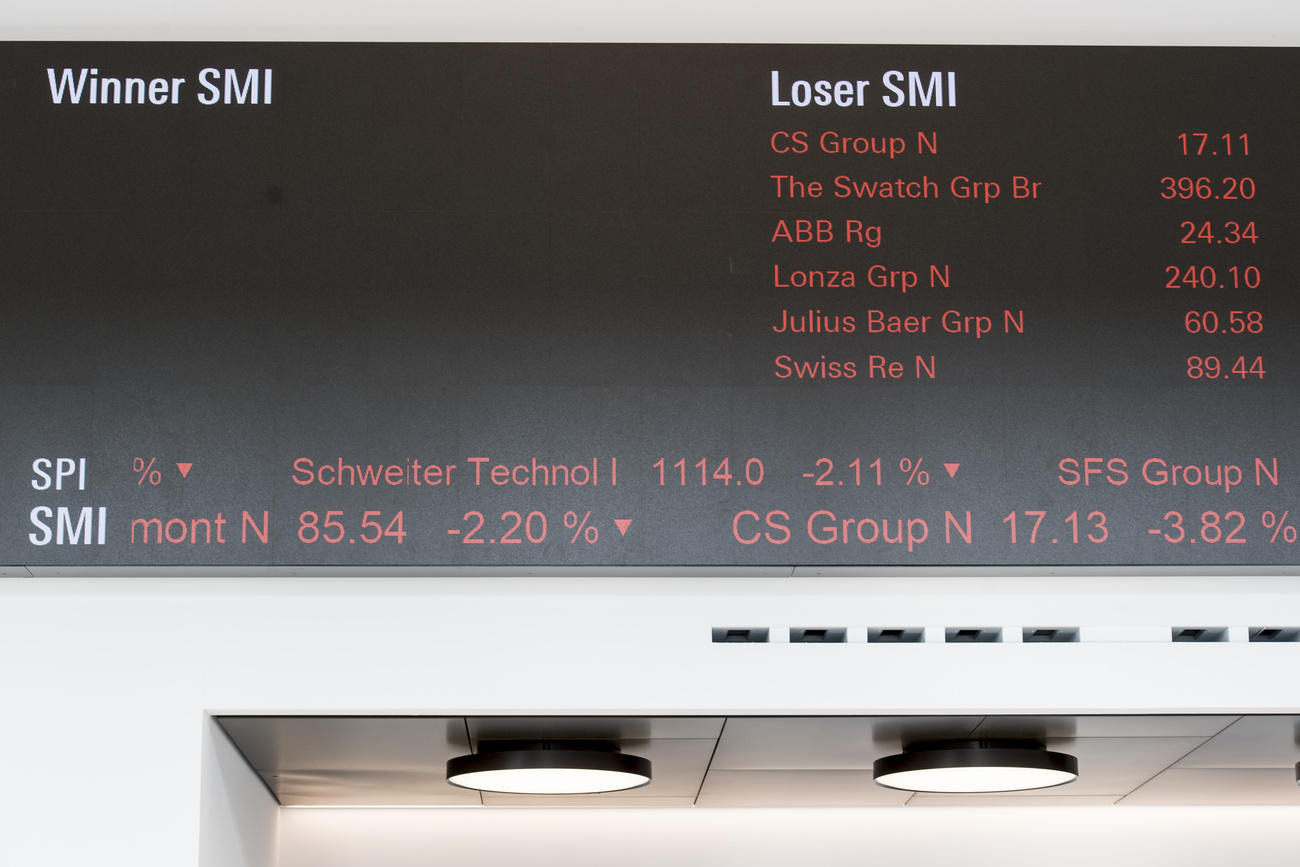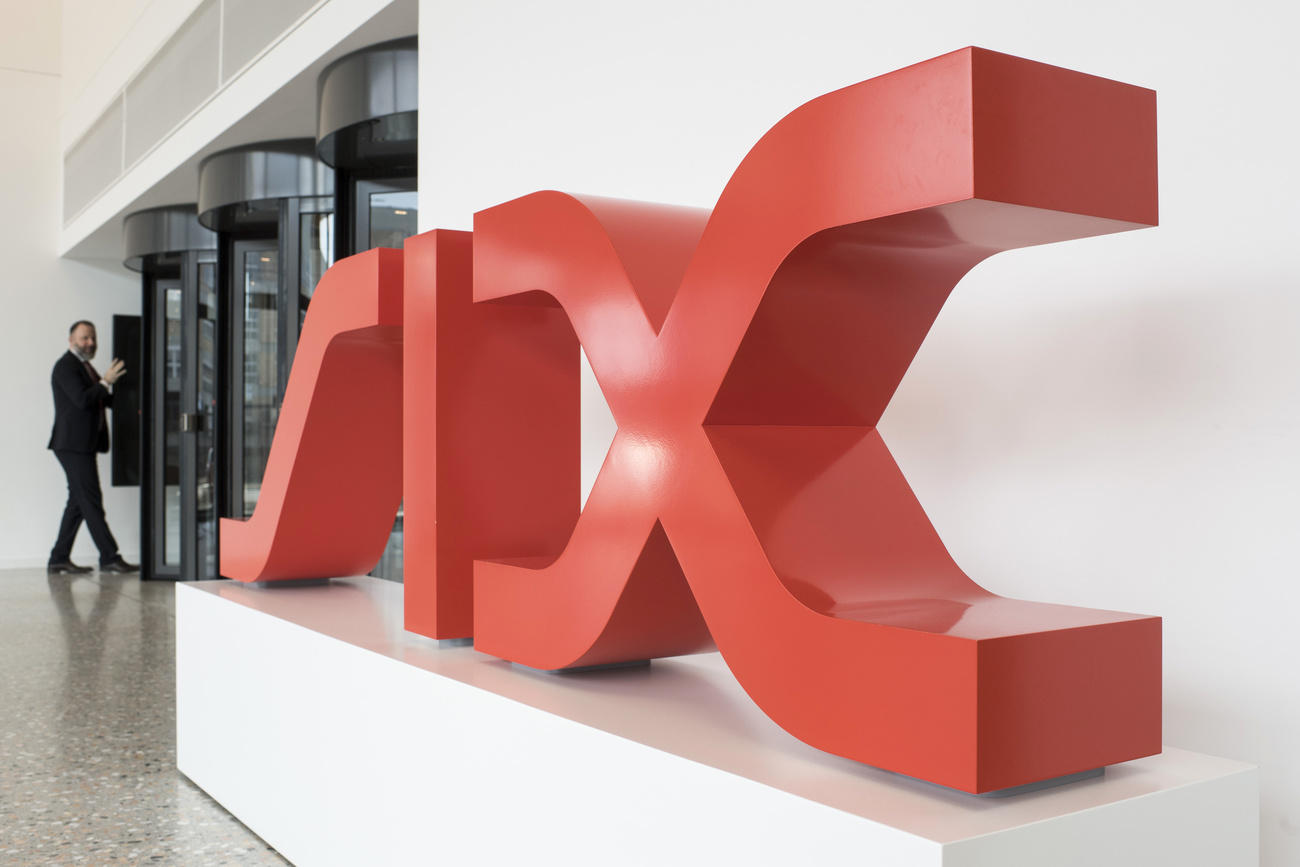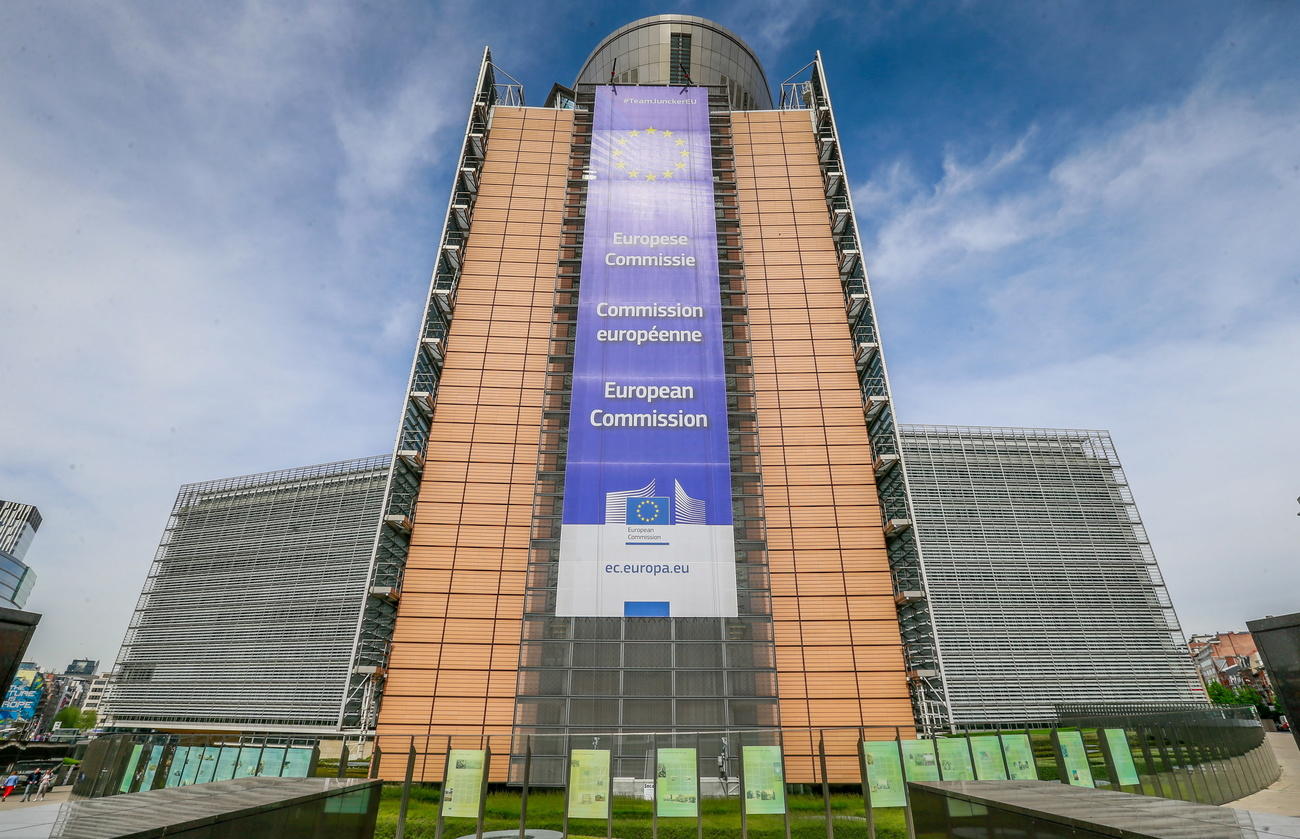Has the EU scored an own goal with Swiss stock exchange freeze?

Of all the sticks the European Union could have used to beat Switzerland into line, freezing out its stock market is perhaps one of the most ineffectual, an economist tells swissinfo.ch.
Since Monday, Swiss trading platforms have been unable to export their services to the EU. This has blocked direct access to Europe’s fourth largest exchange for EU traders. In retaliation, the Swiss government banned the trading of Swiss company shares on EU exchanges.
All this because Switzerland and the EU cannot agree on a framework for future political ties – and especially the pace at which negotiations are going (too slow for the EU).
The results of the stock exchange ban so far have proven benign. Swiss company shares have shown no sign of dipping in value while trading volumes on exchanges have been in the “business as usual” range this week.
This shows that the EU may have made a misjudgment, says Reto Föllmi, an economics professor at the University of St Gallen. “The EU has gone down the wrong path when choosing a punitive measure,” he said. “This has harmed EU investors more than the Swiss. And it has made the Swiss government more determined to stand up to Brussels.”
This is because exchange operator SIX Group now has a European monopoly as a Swiss share trading venue. This forces traders located in the EU to now go through intermediaries to get their hands on Swiss stocks, and this adds more time and expense to their business.
High frequency traders will be the worst affected, says Föllmi’s university colleague Angelo Ranaldo, a professor of finance. This is because their algorithms feed off data being sent out by various exchanges and work out the best trading strategy based on small differences between each venue – a process known as arbitrage.
The entire financial system is reliant on large flows of transparent data to enable the market to discover the right prices for financial products. Concentrating data is therefore a hinderance to traders. Liquidity, the speed and volume at which shares are traded, could suffer as they adjust to the new reality, he said.
“Less competition equals less competitive prices,” he told swissinfo.ch. “The only winners are financial intermediaries that now have more market power as EU traders are obliged to use them to facilitate trades on the Swiss stock exchanges.”
Both experts agree that the share prices of Swiss companies, such as Nestlé and Roche, are hardly likely to be affected as they are still considered prize assets. But the longer the Swiss-EU political impasse drags on, the greater the potential for the Swiss stock markets to feel the pinch, they say.
“In the long-term things may look a bit different,” says Föllmi. “When new companies issue shares they will have to decide which is the best market on which to list. If it remains isolated, SIX may look less attractive.”

More
What effect would an EU freeze have on the Swiss stock market?

In compliance with the JTI standards
More: SWI swissinfo.ch certified by the Journalism Trust Initiative




You can find an overview of ongoing debates with our journalists here. Please join us!
If you want to start a conversation about a topic raised in this article or want to report factual errors, email us at english@swissinfo.ch.